Managing Wildlife Populations
Columbia Basin Mule Deer: Biologist Brinkman conducted an additional ground-based mule deer survey around Rock Lake in District 2. Ground surveys are also conducted in Districts 4, 5, and 7, and are used to estimate post-season herd composition (for example fawn to doe and buck to doe ratios) for three subherds across the Columbia Basin. Aerial surveys continued this week for the Odessa subherd in parts of Lincoln and eastern Grant counties for population estimation. Biologists Lowe and Brinkman and Eastside Ungulate Specialist Bundick were able to fly a day and a half of surveys between periods of rain, snow, and heavy fog this week.
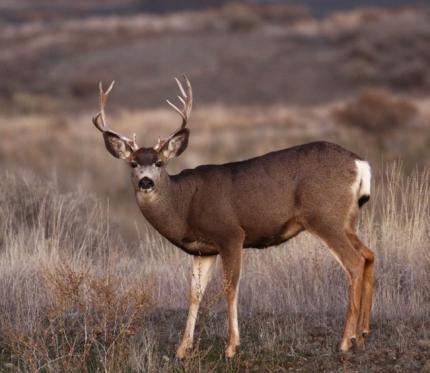
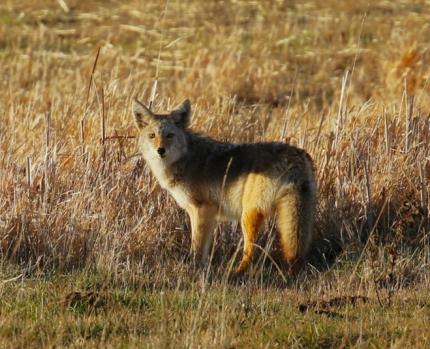
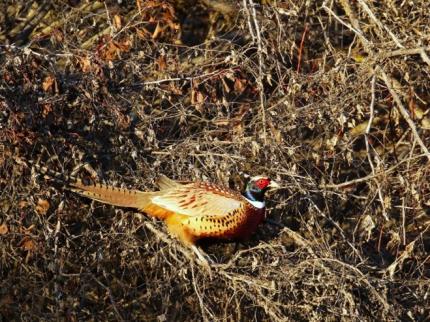
Providing Recreation Opportunities
Hunter Success: Private Lands Biologist Nizer received a harvest report from a hunter that hunted on Columbia Plataea Wildlife Management Association land. The hunter shot it on the last day of the late muzzleloader season.
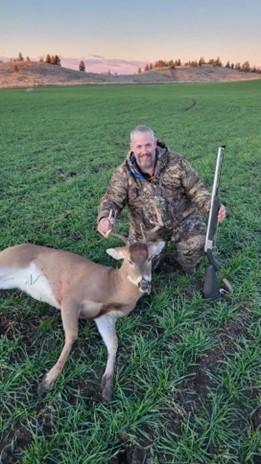
Turnbull Hunt By Reservation Success: Private Lands Biologist Nizer received a harvest report from a hunter that hunted on the hunt by reservation Turnbull Wildlife Refuge Long Lake Hunt.
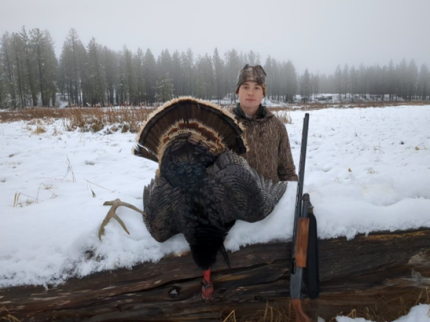
Access Site Maintenance: Access staff members went to Heller Bar and Joseph Creek on Monday to clean restrooms and pick up litter. They power washed and painted the walls of the toilets at Heller Bar. They also removed litter and leaves. They cleaned access sites across the district and checked the shooting range.
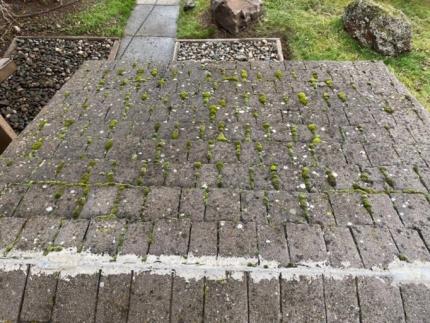

Providing Conflict Prevention and Education
Whitman County Elk: Wildlife Conflict Specialist Kolb responded to a complaint in southern Whitman County concerning 300 elk that were destroying fences, pasture ground, and commercial crops. Kolb conducted a site visit with the producer. The producer agreed to enter into a Damage Prevention Cooperative Agreement for additional tools and resources to address the on-going damage.
Cloverland Elk: Wildlife Conflict Specialist Wade spent one day in the Cloverland area after receiving a report that a large herd of elk had been seen in the area. Wade located roughly 100 head of elk in the area where they were reported. The elk were in a non-crop area and muddy conditions in the area were not conducive to hazing. Wade and Natural Resource Technician Heitstuman monitored the elk and will start hazing when conditions approve.
Conserving Natural Landscapes
Water Trough Escape Ladders: Natural Resource Technician Meisner spent the week replacing rotten escape ladders in water troughs scattered across the wildlife area. The old steel ladders rusted out and were not useable for birds or small mammals. Without the ladders, they could become trapped and perish in the water troughs. The new ladders are aluminum versus steel so they will have a longer lifespan. The design is essentially a metal mesh that angles down into the water. When birds or small mammals fall into the water, they can climb out. He also checked winter gate closures and facilities.
Habitat Plantings: Private Lands Biologist Hadley planted shrubs on a Feel Free to Hunt access site in Walla Walla County and met with a member of the Blue Mountain Pheasants Forever Chapter to plan volunteer dates. They plan to plant shrubs and do other site prep work on multiple Washington Department of Fish and Wildlife contracted access sites in Columbia and Walla Walla counties. Private Lands Biologist Hadley contacted landowners to notify them of planned work dates.
Aquatic Lands Enhancement Account (ALEA) Grant Planning Meeting: This week Wildlife Area Assistant Manager Rimmelspacher and Wildlife Area Manager Finch attended monthly meeting of the Spokane Chapter of Pheasant Forever in Spokane. Spokane Audubon Haggin and ALEA Grant Manager Thorburn were present at the meeting to discuss the terms of the grant. The purpose of the meeting was to plan the winter riparian shrub planting that will take place in the Lake Creek Drainage on the east side of Z-Lake. In September, Rimmelspacher placed a shrub order that included over 750 trees and shrubs. Shrub matting will be used along with deer fencing to protect the plants. The estimated time for planting will be mid-April of 2024. The Bureau of Land Management has done very similar work in the same drainage over the last few years and has been very successful.
Camp Wooten Environmental Learning Center: State Parks staff members completed the project at Camp Wooten to put the creek, that comes out of the draw behind the park, back into its historic channel where it will by-pass the park to the north and reduce the risk of gulley-washers damaging anymore of the buildings. Dingman used some leftover seed to seed the disturbed areas for State Parks.
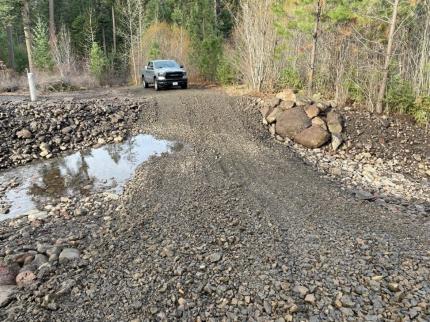
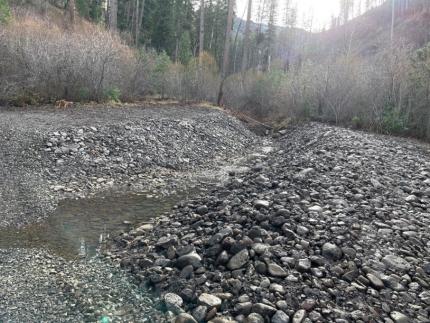
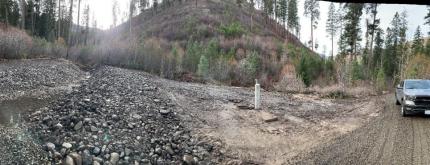
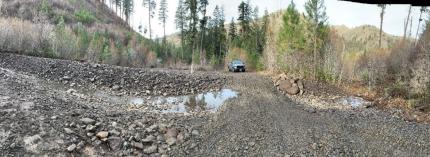
North Spokane Natural Area Corridor: There is a lot happening behind the scenes near Waikiki Springs Wildlife Area, located along the Little Spokane River on the north edge of the city of Spokane. The Spokane Tribe of Indians (STOI) recently purchased some land near the Inland Northwest Lands Council’s (INLC) Nature Preserve. The Inland Northwest Lands Council’s land lies adjacent to the wildlife area. Washington State Parks Department is also working on acquiring about 1,000 acres, called the Glen Tana property, in the same general area. With these new acquisitions, there will be a natural area corridor connecting Washington Department of Fish and Wildlife Waikiki Springs Wildlife Area, INLC’s Waikiki Springs Nature Preserve, the STOI property, a chunk of Kalispel Tribe property next to their golf course, Washington State Parks’ Glen Tana property, and Riverside State Park.
Dziekan and Regional Wildlife Program Manager Robinette represented Washington Department of Fish and Wildlife in a meeting about management of these publicly accessible parcels. Representatives from the four other organizations, State Parks, INLC, STOI, and the Kalispel Tribe also attended. After a general introduction, they discussed how each organization currently manages its lands in the area, and how future partnerships between all five organizations can improve habitat management and possibly bring about co-management of these lands.
Providing Education and Outreach
Waikiki Springs Presentation: On Thursday, Dec. 7, North Region 1 Access Areas Manager Dziekan gave a brief presentation at the closing portion of the Lands Division meeting in Ellensburg. He discussed the unique status of Waikiki Springs Access Area, which is used more like a city park and is being transitioned into a wildlife area.
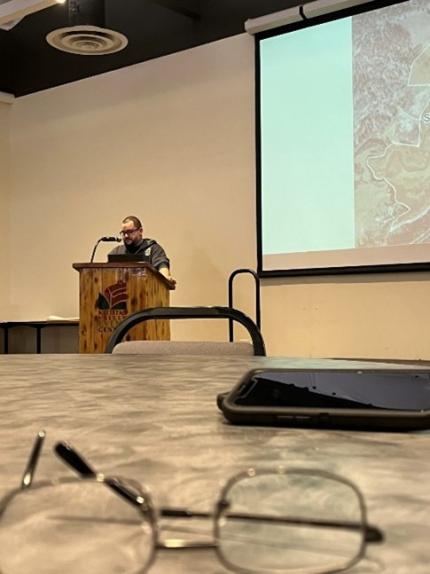
Volunteer Coordination: Wildlife Conflict Specialist Kolb conducted the final coordination with a Washington State University wildlife ecology student before they started their volunteer work in District 3. The student will have volunteer opportunities in every Washington Department of Fish and Wildlife program during their work period.